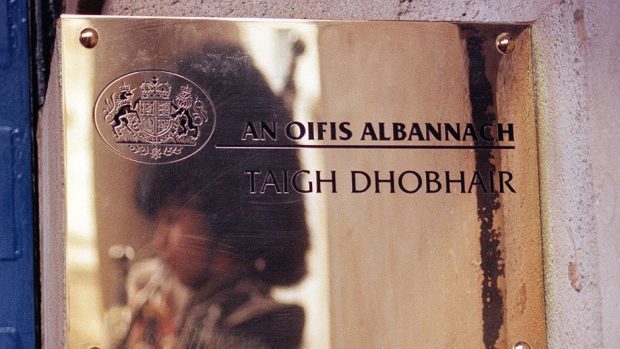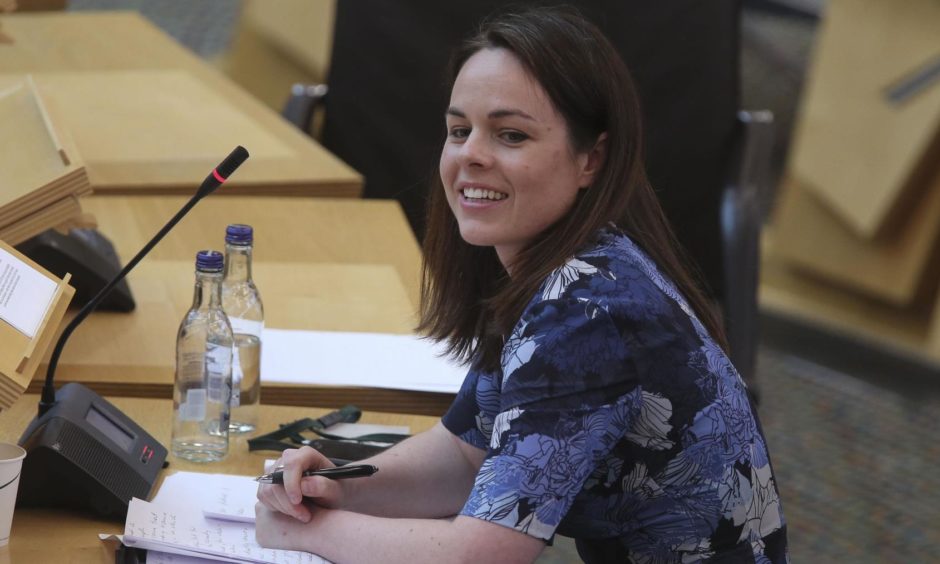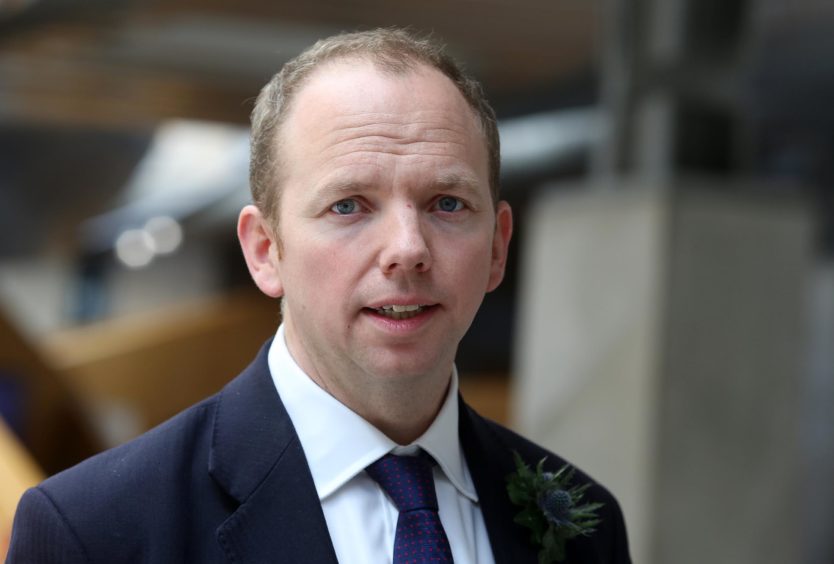A hard-hitting report has warned that Gaelic is at risk of dying out in 10 years with only 11,000 speakers left.
The University of the Highlands and Islands (UHI) study, published earlier this month, called on the Scottish Government to take radical action to save the language.
‘The Gaelic Crisis in the Vernacular Community: A comprehensive sociolinguistic survey of Scottish Gaelic’ has been billed as the most comprehensive social survey on the state of Gaelic communities ever conducted.
Its conclusions were devastating with the language being lost in its Hebridean heartlands, ageing speakers and a mismatch between Gaelic policy and the crisis on the ground.
The authors’ main findings show that the language is in crisis, and that within remaining vernacular communities of Scotland, the social use and transmission of Gaelic is at the point of collapse.”
Publicity blurb for the UHI report
Scotland’s Gaelic-speaking Finance Secretary Kate Forbes of the SNP does not think the language’s death is inevitable. But she believes everyone must act and calls on Gaels to embrace their heritage with pride.
Highlands Tory MSP Donald Cameron is not a native speaker but comes from a family with a deep interest in Gaelic. It was the mother tongue of his forefathers, including his famous ancestor Cameron of Lochiel, one of Charles Edward Stuart’s most prominent supporters in the 1745 Jacobite rebellion.
Mr Cameron warns we are in the “last chance saloon” as far as the language is concerned and calls for a campaign for its revival and moves to encourage youngsters to speak it.
Kate Forbes MSP
“The new research has suggested that Gaelic is the vernacular language of 11,000 people in Scotland today. That might have surprised some people, who already thought that Gaelic was confined to a short chapter in the history books of the Highlands and Islands. Far from it.
The real miracle is that Gaelic has withstood the relentless stigmatisation, chronic apathy and public denigration of its value.”
“Many more people can speak or read Gaelic – at least 58,000 according to the 2011 census – but this new research suggested it is the community language of 11,000 speakers. That means that today, in 2020, there are families who use it exclusively at home and it is the medium of learning and working for children and adults. In fact, it is an almost daily part of my work as I give political interviews, speak to constituents at surgeries and answer emails in Gaelic.
“The real miracle is that Gaelic has withstood the relentless stigmatisation, chronic apathy and public denigration of its value.
It is a conscious choice to kill a language, and apathy is not a neutral position. There is a responsibility on all of us, Gaelic speaker or not. For Gaelic to withstand the next decade it will take more than activism, tokenism or sentimentality.”
“That is due in no small part to the activists who demanded education, public services and media services in their native tongue. Despite that, Gaelic’s future is very much in doubt. The research suggested that the current rate of decline could see Gaelic dying as a living language within the decade. If it dies, then with it dies a significant part of our collective history, culture and vibrancy.
“But that outcome is not inevitable. It is a conscious choice to kill a language, and apathy is not a neutral position. There is a responsibility on all of us, Gaelic speaker or not. For Gaelic to withstand the next decade it will take more than activism, tokenism or sentimentality. Gaelic speakers must choose to use the language with pride or lose it. Every public and private organisation will choose to either facilitate or reverse Gaelic’s decline. Public commitments to support the language are a good starting point, to raise the status of the language, but it is an empty gesture if you can’t offer a service or respond to an email in Gaelic at the very least. And in turn a Gaelic-speaking service is irrelevant unless Gaelic speakers are using the language in daily life.
“This report should concentrate minds. It is possible to avert the outcome predicted by this research, but it will take more than hope. We should ensure that our policies are aiding the cause, but fixating on the structures ignores the bigger problem.
“So, this is an appeal to the many speakers who are ashamed and embarrassed to use the language they learned at school or at home. You have a gift more precious than you may realise. The choices you make to speak it, and the choices everybody else makes to enable that, will determine whether Gaelic lives on to the next generation. A vernacular language lives through the comments, debates and thoughts of speakers. It is brought to life at home, in the workplace and in the everyday, natural actions of a living community. Learn Gaelic, use Gaelic and facilitate Gaelic – and prove this report’s conclusion wrong.”
Donald Cameron MSP
“Securing the future of Gaelic in the face of years of decline is one of the most challenging issues facing us today. It is something that transcends the usual to-and-fro of politics, and it requires a more subtle approach than simply throwing money at the issue in the hope that a mere injection of funds will solve it. Preserving a language and, by extension, a culture, simply doesn’t work like that.
Despite several attempts on my part to learn the language as an adult, I have really struggled to gain fluency in Gaelic. It eludes me, and I feel a sense of loss, cut off from the language my fathers spoke.”
“The conservation of our inherited culture is central to my own political philosophy. The survival of Gaelic is fundamental to that. I cannot rest easy if the language dies, and I personally feel a very strong sense of duty to its survival.
“And yet, despite several attempts on my part to learn the language as an adult, I have really struggled to gain fluency in Gaelic. It eludes me, and I feel a sense of loss, cut off from the language my fathers spoke. I suspect I am not alone in that feeling, particularly among people with roots in the Gàidhealtachd.
“If this sounds gloomy it is not supposed to, because there are some cautious grounds for optimism. There is, definitely, a growing public awareness of the urgency of the situation and a firm belief that Gaelic can’t be left simply to wither on the vine. The Cross Party Group in the Scottish Parliament on Gaelic, of which I am Deputy Convener, is doing good work, as are many official and unofficial organisations.
Gaelic is now in the last chance saloon. We owe it to the countless generations before us, those who spoke it, who taught it, and who passed it on to us, to do the same for the countless generations to come.”
“But optimism must be grounded in realism. A top-down approach won’t work because ultimately it will be communities which determine whether Gaelic remains a living and dynamic language. And that means engaging the younger generations, as well as a campaign aimed at reviving Gaelic at its grassroots and among the people who currently speak or learn it. As others have said, such a revival goes hand in hand with wider economic regeneration of these communities, many of which are in peripheral and remote areas. It also involves locating official agencies and media organisations in those communities too.
“Gaelic is now in the last chance saloon. We owe it to the countless generations before us, those who spoke it, who taught it, and who passed it on to us, to do the same for the countless generations to come.”


